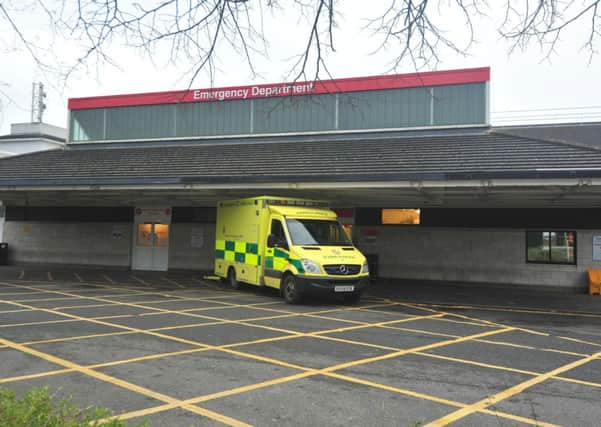Family hits out after manwas transported ‘in agony’


Roland Raine Mitchell, 83, of Jellicoe Close, Eastbourne, died on August 15 2014 at the Eastbourne DGH, after a colonic stent procedure.
An inquest into his death was held at Eastbourne Magistrates’ Court earlier this month by East Sussex coroner Alan Craze.
Advertisement
Hide AdAdvertisement
Hide AdMr Mitchell’s family said after it was clear things had gone wrong, he was transported to the Conquest in ‘agony’ and then back to the Eastbourne DGH, where he died weeks later.
His wife Shirley, speaking at the inquest, said: “I do not think people should be made to travel between the two hospitals.
“Why should people travel in agony, then to be sent back?”
Mr Aldridge, a consultant surgeon between the Conquest Hospital and Eastbourne DGH, said he understood the family’s concern and said: “I am a victim of the changes that were made”.
He also said he asked for Mr Mitchell to be sent to the Conquest, located on The Ridge in Hastings, ‘with the best intentions’.
Advertisement
Hide AdAdvertisement
Hide AdMr Mitchell had undergone a colonic stent on July 29, after doctors were concerned about a blockage near a tumour.
Mr Aldridge said Mr Mitchell was not suitable for surgery because of his age and medical history.
At the inquest, Mr Mitchell’s family said they were unhappy they were not consulted on the decision.
Dr Anderson, a radiologist at the Eastbourne DGH who performed the stent, said the operation appeared to go well.
Advertisement
Hide AdAdvertisement
Hide AdBut the following day Mr Mitchell became unwell, and a post mortem examination showed a ‘tear’ in the area close to the two stents.
“We decided he should be referred to surgical care to look at what options were available,” said Mr Aldridge, who was working at the Conquest Hospital at the time.
Mr Mitchell was taken to the Conquest to be seen by the consultant, but because of the ‘tear’ Mr Anderson said the chance of Mr Mitchell dying in an operation was seventy to eighty per cent.
It was decided he would go back to the DGH for palliative care, and he died weeks later.
Advertisement
Hide AdAdvertisement
Hide AdCoroner Alan Craze, said Mr Mitchell died of ‘a known but rare complication of colonic stenting’.
In total 250 colonic stents have been performed at the DGH over the pastten years.
This was, they say, only the second time the procedure had resulted in death due to a tear, a figure below the national average of a one to four per cent mortality.